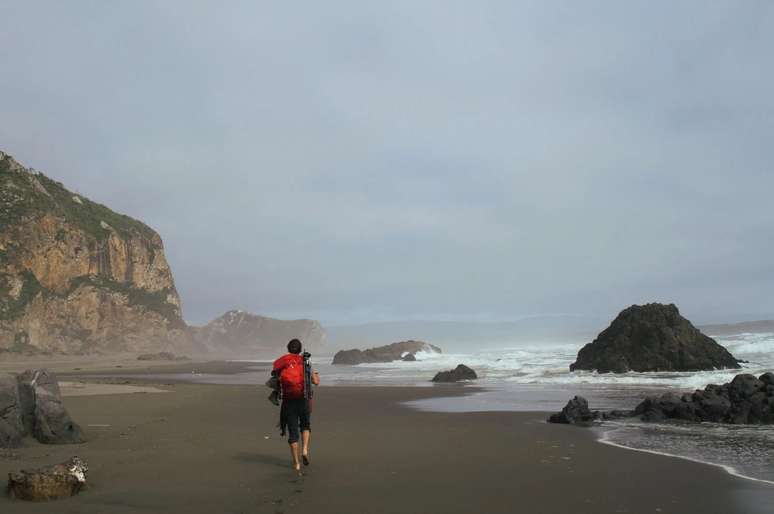Carnival is over and 2024 unfolds, unimaginatively, ahead. The challenges are there and many people have already made it clear that mental health will be a top, daily priority in the coming year.
To begin with, there is a nostalgia experienced by many, already on Ash Wednesday, when the best part of the celebration is over, and now we will have to face a long year before the celebrations return. Well New Year’s Eve, holidays, summer and Carnival are starting to appear in the rearview mirror and many alarms, congestion, rush, commitment, troubles, bills and goals emerge on the horizon. Life is not easy for anyone!
This view of duties and obligations as opposed to free time and idleness can be an important factor in worsening mental health. Isn’t a more adequate management of this balance possible? Could it be that being able to create “green” spaces in our “grey” routine doesn’t help improve our sense of well-being and quality of life?
Moral hangover
There are those who face, in addition to the traditional hangover, a sort of “moral hangover” due to what they did or did not do during Carnival. Excesses, exhaustion, tiredness, incorrect judgments and decisions, as well as the fear of exposing oneself to risk, can be alleviated with a good dose of rest, reflection, moderation and a visit to the doctor (if necessary).
In the days following the lockdowns, marches, street parties, closed dances and various gatherings, tiredness associated with pain, discomfort, malaise and even a little fever deserve attention. In the year in which dengue has started so strong and in which covid-19 has once again shown significant growth, we must be careful. It’s good to remember that our physical health can also have a significant impact on our emotions and psychological well-being.
It’s time to stop
This week, in the midst of Carnival, the Brazilian surfer Filipe Toledo, known as Filipinho, current two-time world champion, announced that he had asked the WSL (World Surf League) to be exempt from the rest of the World Surfing Circuit season. The athlete, who was already suffering from mental health problems, asked for time to recover.
High-level competition requires professional athletes to focus, be dedicated, and have a routine so tough that it can put these professionals at risk. But it is not only there, on the top step of the podium, that “captures the virus”. Any of us living in a society that demands more and more time, more investment, and more productivity can face this burnout. Therefore, being able to see, stop, breathe and understand what is happening can be a very important step.
The love that makes you suffer
Carnival also demonstrated, once again, how the crisis of a romantic relationship can impact mental health. Beyond any moral judgment, every year, busy people are caught kissing others, and end up exposing and making their partners suffer.
This year, Patrícia Cardoso, wife of Marcelo Adnet, went online to say she looked “fantastic, sqn” after photos of the comedian kissing a woman in the street were leaked.
Beyond celebrities, in a time when technologies and social networks are increasingly ubiquitous, it is not uncommon for different targets to quickly capture and share such situations. It remains for those who feel hurt to face the pain, evaluate their relationship and seek support.
It’s never easy, but life requires constant adjustments in an ever-changing world. And it’s always nice to be able to count on help in moments of greatest emotional turbulence.
Prejudices out!
During the Carnival in which many trios and blocs, throughout Brazil, have strengthened the fight against prejudice, homophobia, transphobia and racism, it can never be too much to remember that economic inequalities and discrimination are factors that help explain why our country has the highest levels of anxiety and depression in the world. Exclusions and violence affect the well-being of millions of Brazilians all year round.
It was also the Carnival in which many queens, such as Ivete Sangalo and Daniela Mercury, got tired, cried, tried to take care of the safety and well-being of the revelers and, moreover, managed to silence distorted and apocalyptic readings of the world, beyond to make their voices heard, prevail over those who insist on saying what women can or should do. Save the clarity and strength of these voices that lighten the lives of all of us!
If this Carnival served not only to have fun, rejoice and celebrate freedom, but also to capture many dimensions that can impact our mental health, we have even more reasons to celebrate. May the next one come!
*Jairo Bouer is a psychiatrist and writes weekly for Terra Você.
Source: Terra
Ben Stock is a lifestyle journalist and author at Gossipify. He writes about topics such as health, wellness, travel, food and home decor. He provides practical advice and inspiration to improve well-being, keeps readers up to date with latest lifestyle news and trends, known for his engaging writing style, in-depth analysis and unique perspectives.





![TOMORROW BELONGS TO US IN ADVANCE: THE PHILIPPINES WILL DO EVERYTHING TO PROTECT CHARLES… WHAT’S AHEAD OCTOBER 27 TO OCTOBER 31, 2025 [SPOILERS] TOMORROW BELONGS TO US IN ADVANCE: THE PHILIPPINES WILL DO EVERYTHING TO PROTECT CHARLES… WHAT’S AHEAD OCTOBER 27 TO OCTOBER 31, 2025 [SPOILERS]](https://fr.web.img6.acsta.net/img/b2/7f/b27f5a3fbc55d29b821eff36e2cd8a48.jpg)
-soq6i9m0ttgh.jpg)


